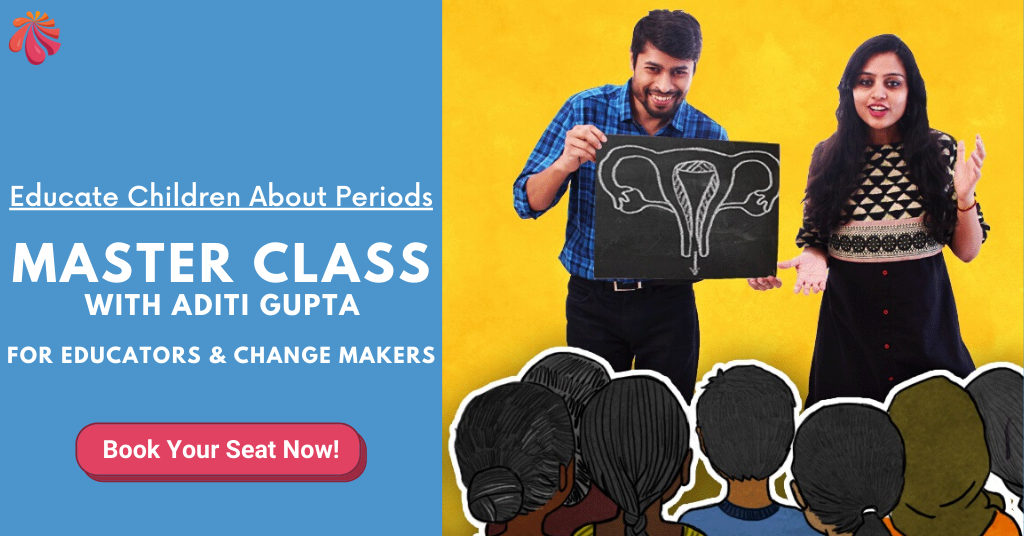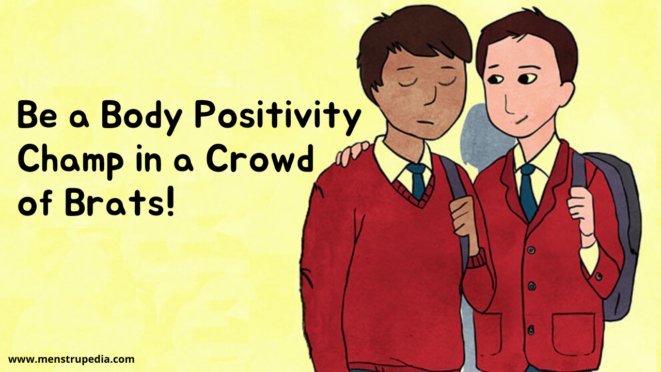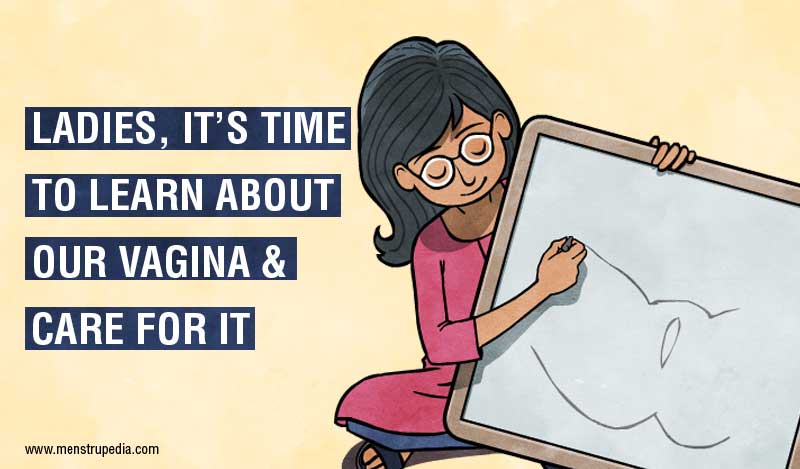Body shaming usually starts at a very young age and might turn into heinous behavior later in life, if not checked early. This feature explores the initiation of conversations both at home and in classrooms in order to tackle the issue of body shame in teenagers today.
Champ, our superstar teen, is from a small Indian city. Champ has many friends who like his helpful personality and look up to him. One day, Champ and his friends went to the mall to celebrate one of their birthdays.
At the food court, while they were deciding between burgers and pizzas, Brat, a friend in the group, made Champ terribly uncomfortable. Two young girls were enjoying their cup of coffee at another table. While Champ and the group were engrossed deep in conversation, Brat passed a loud comment about one of the girls being “so fat.”
The young girls, chuckling till then, suddenly went quiet and left abruptly. Some of the boys from the group laughed boisterously, and the rest turned into mute bystanders. Champ became pensive. He caught a glimpse of the girl who was catcalled. There was something in her eyes that tore into his heart.
That night, Champ looked visibly perturbed, but was hesitant to speak up. His mother comforted and assured him that he could confide in her. As Champ narrated the incident, his mother felt a mixed sense of pride and concern. She realized that Champ was turning out to be a strong and sensitive man. However, this matter had to be handled tactfully to stop Brat from repeating such an act, as well as to empower Champ, who had now gathered the courage to speak up.
The next day, Champ’s mother went to Brat’s parents’ house. She calmly explained to them, that if Brat’s activities weren’t monitored now, a harmless comment may turn more harmful when he grows up. Since it was a delicate issue, she wisely chose her words, making them understand the need for early intervention. That evening, Brat’s parents explained the situation to him patiently. Brat realized his mistake and apologized to his parents.

The next day, Champ noticed Brat’s discomfort and spoke to him in private. Champ described how he used to be insensitive towards others but soon realized how a seemingly harmless act can deeply scar the other person. He narrated a story of his classmate who had confessed to him about crying inconsolably for a week because a few boys made lewd remarks about her appearance just outside the school. Brat absorbed that an innocuous joke can be detrimental for someone, scarring them for a long time and acknowledged his mistake. Champ hugged Brat.
Neither of them spoke about this episode again, but it had left a mark on everybody – Champ, Brat, and the other friends who had either laughed or kept quiet at the time.
My dear teens, are you a Brat or a passive witness to another Brat? If your answer is yes, then it’s never too late. A real Champ embraces people despite how different they are and acts when he sees his friends mocking others because of their appearance or personality. If you haven’t been able to deal with this yourself, escalate it to your parents or guardians. They can discuss it with you and guide you appropriately. They are your heroes.
Congratulations, dear parents of the many Champs out there, on raising a sensible child. In today’s world, where competition comes to our minds before collaboration does, you have nurtured your child into an empathetic human being. When your children come to you with a problem, listen to them patiently. You must turn into a friend to make your child feel safe in opening up to you.
Dear teachers, you nurture generations. Discuss the repercussions of regressive comments on the confidence of a young student. Refrain and stop students from making harmless jokes on the physique or personality of other students. Besides academics, we now urge you to help us actively inculcate compassion among our students.
My dear parents of Brats, do not worry if somebody comes to you with complaints. Do understand that Brat is on the cusp of childhood and adulthood. It is essential to be patient with this age group, explaining the finer nuances of sensitivity, without admonishing them. It is only a matter of time before Brat becomes a Champ.
As parents, it is also of utmost importance that you become role models and do not body-shame yourself or anybody in front of kids. The majority of the traits we pick-up as kids is by imitating elders around us. If a child sees that his parents practice body-positivity and respect their bodies, he becomes immune to destructive criticism.
Most importantly, to parents of bullied and body-shamed teens, always remember to make your kid feel beautiful inside-out. The power in them becomes infinite when they believe in themselves. Let’s not reduce our superstars to a number on the measuring tape or a stereotype in society. You can play a great role in making a victim turn into a survivor and fighter. Listen to them actively. Discuss role models who battle all odds and
discrimination to reach great heights. We must also accept that once out of the cocoons of our homes, our kids have to go out into the harsh world.
Therefore, it is best to armor them with an empathetic heart and with resilience made of steel!

Quoting from Caitlin Moran’s posthumous letter to her daughter: “Stay at peace with your body. While it’s healthy, never think of it as a problem or a failure. Pat your legs occasionally and thank them for being able to run. Put your hands on your belly and enjoy how soft and warm you are – marvel over the world turning over within, the brilliant meat clockwork, as I did when you were inside me, and I dreamt of you every
night.”
Embracing our imperfections makes us more tolerant. All of us have a strong role in shaping our future, and while we are at it, let’s make our tomorrow more harmonious and compassionate.

Author: Sourav Kumar Panda
Sourav Panda is a poet and writer from Bhubaneswar. He is keen on engaging with projects and dialogue on Human Rights, Social Impact, Leadership, and Responsible Business. He can be reached at [email protected]
Edited by: Divya Rosaline






